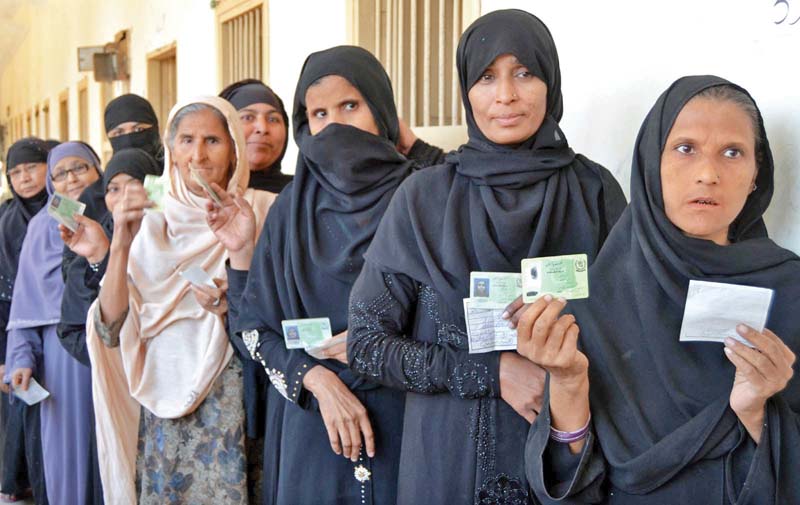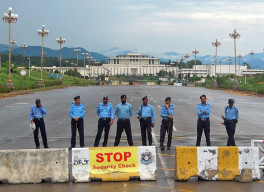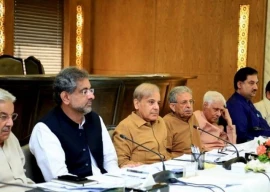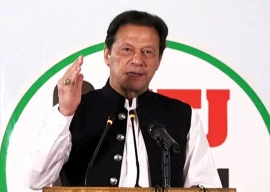
The Free and Fair Election Network (FAFEN) has said that an impressive turnout of 49.7 per cent in the by-elections for 20 Punjab Assembly constituencies on July 17 augurs well for "an otherwise struggling democracy in Pakistan".
The body also noted that the rare acceptance of defeat by PML-N could be a gesture that can set the stage for a thriving democracy in the country.
In a detailed report, FAFEN observed that the polling day remained largely orderly and well-managed though reports of isolated incidents of brawls and fights tainted the perception of the quality of the electoral exercise. However, it identified some reports of violence as "overplayed" by media, particularly social media.
FAFEN also emphasised that PTI’s claims about rigging and the allegations of partisanship against the ECP as well as other government institutions must be probed independently by a parliamentary committee.
In addition to contributing to the ongoing electoral reform process, a conclusive probe will strengthen the integrity of future elections, it added.
“Amongst several positives, the by-elections are instructive for the ECP and other stakeholders to pay more attention to curbing the increasingly polarising tactics and content of party campaigns both before and on the election day not only through traditional mechanisms but also social media,” the report read.
Recommendations
It noted that the by-elections reinforced the need for a proper monitoring and enforcement mechanism to ensure compliance with the code of conduct for parties and candidates and check any misuse of government resources, and alleged cases of vote-buying and other inducements through tightening the laws, rules, and limits for election expenses.
In addition, to improve the election environment, a stricter legal regime must be introduced to discourage unsubstantiated allegations, insinuations, and accusations.
The ECP ensured appreciable improvements in polling, counting, and result-management processes, particularly by making sure that preliminary results of all constituencies, except for the one in Rawalpindi (PP-7), were promptly released.
The report said that this ensured greater public confidence in the election outcome and also pre-empted the escalation of political temperatures that generally arise as a result of delayed results.
However, the ECP’s enforcement remained weak for curtailing the campaigning and canvassing on the day of elections through electronic media and social media primarily due to inadequate legal and regulatory provisions.
“ECP’s instructions to media on election coverage were largely circumvented, with political leaders from contesting parties canvassing for votes in their media appearances on election day. Instructions for the telecast of polling stations-wise results were also not completely adhered to.”
FAFEN went on to suggest that one way to address such situations is to introduce effective checks on the use of money, which currently are inadequate, cosmetic, and weak. Unless campaign finance rules are tightened, a level playing field will be difficult to be maintained for all candidates and political parties, it noted.
The report noted that the by-elections were among the most hotly contested elections in recent times.
Turnout
However, the number of contestants dropped from 234 candidates (226 men and eight women) who contested in general elections in 2018 to 175 candidates (170 men and five women) for the 2022 by-elections.
As many as 4,579,898 voters were registered to vote in these constituencies as compared to 3,842,368 in 2018. Among men voters, the turnout was 53 per cent compared to 60.6 per cent in general elections in 2018.
Women’s turnout was recorded at 45.5 per cent – relatively lower compared to 54 per cent in 2018’s general elections. Over 60,000 more voters cast their votes in these by-elections as compared to their number in 2018, of which more than half (37,271) were women, the report shared.




1731975305-0/Untitled-design-(40)1731975305-0-165x106.webp)
1731975060-0/Untitled-design-(39)1731975060-0-165x106.webp)





1731929357-0/Express-Tribune-(6)1731929357-0-270x192.webp)










COMMENTS
Comments are moderated and generally will be posted if they are on-topic and not abusive.
For more information, please see our Comments FAQ